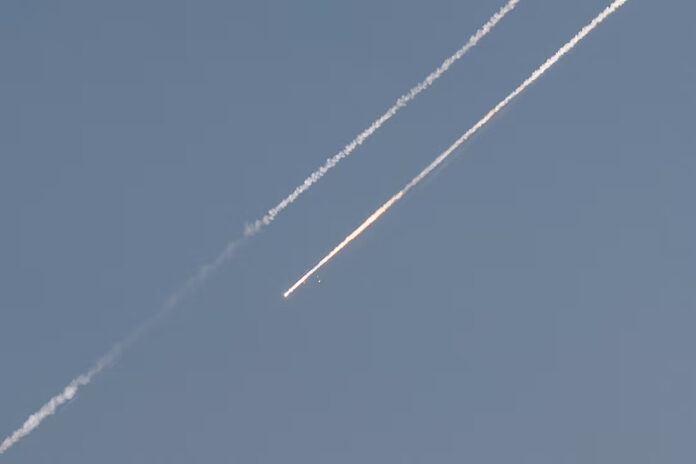
A fragile ceasefire between Israel and Iran, announced early Tuesday by U.S. President Donald Trump, is already under strain after Israel accused Iran of violating the truce by launching missiles, a charge Iran firmly denies.
In a dramatic statement on Truth Social, President Trump declared the ceasefire “complete and total,” saying it marked the end of what he called the “12-Day War.” He praised both countries for their “stamina, courage, and intelligence,” and claimed the ceasefire was expected to last “forever.”
According to Trump, the truce went into effect at approximately 12:00 a.m. ET on Tuesday, with both Iran and Israel initially confirming their agreement. The announcement spurred relief around the world, with oil prices plunging and stock markets rallying amid hopes of de-escalation.
However, within hours, Israeli Defense Minister Israel Katz claimed Iran had launched two missiles toward Israeli territory, prompting the Israeli military to intercept them. Katz labeled the move a “blatant violation” of the ceasefire and ordered the Israel Defense Forces (IDF) to resume strikes against targets in Tehran.
“In coordination with the Prime Minister, I have instructed the IDF to continue high-intensity operations against regime targets and terror infrastructure in Tehran,” Katz said.
Iran: “No Missiles Fired”
Iran rejected the accusation, with state-affiliated outlets ISNA and Nour News calling the missile-launch reports baseless. A senior Iranian security official told CNN that “no missiles have been fired at the enemy so far” since the ceasefire came into effect. The official also issued a warning: “If Israel makes a mistake, all occupied territories will be attacked, just like an hour before the war stopped.”
Iran maintains that it agreed to the ceasefire conditionally, halting its retaliatory strikes as long as Israel ceased its own attacks. Iranian officials framed the agreement as a concession by Israel, with the Supreme National Security Council stating that Israel was “forced to unilaterally accept defeat.”
International Reaction and Ceasefire Fragility
Qatar reportedly played a key role in securing Iran’s acceptance of the truce, and global leaders expressed cautious optimism. China stated it hoped for swift and full implementation, though observers warned that Middle East ceasefires are notoriously unstable.
The truce followed days of intensifying conflict, including U.S. airstrikes on Iranian nuclear sites and Iran’s retaliatory, but largely intercepted, missile attacks on the U.S. base at Al Udeid in Qatar. Trump later thanked Iran for giving advance notice of the attack, calling it a “face-saving move.”
Political Fallout in Israel
In Israel, political leaders were divided. Opposition leader Yair Lapid urged the government to shift focus to Gaza and bring Israeli hostages home. Far-right Finance Minister Bezalel Smotrich called the Iran campaign a “crushing victory,” declaring the removal of an “immediate existential threat” and pushing for renewed action against Hamas in Gaza.
Former Defense Minister Avigdor Lieberman, however, warned against complacency, likening Iran to a “wounded lion” and predicting a protracted negotiation process rather than a lasting resolution.
A Ceasefire in Name Only?
As of Tuesday evening, despite no confirmed casualties or additional attacks, the ceasefire remains precarious. Israeli officials maintain Iran broke the deal; Tehran denies it. Both sides remain on high alert.
Whether the ceasefire can survive these early shocks, or collapse into renewed warfare, remains uncertain. As the world watches closely, the next 24 hours may determine whether this truce marks a turning point or a temporary pause in a volatile conflict.
Written By Rodney Mbua


















